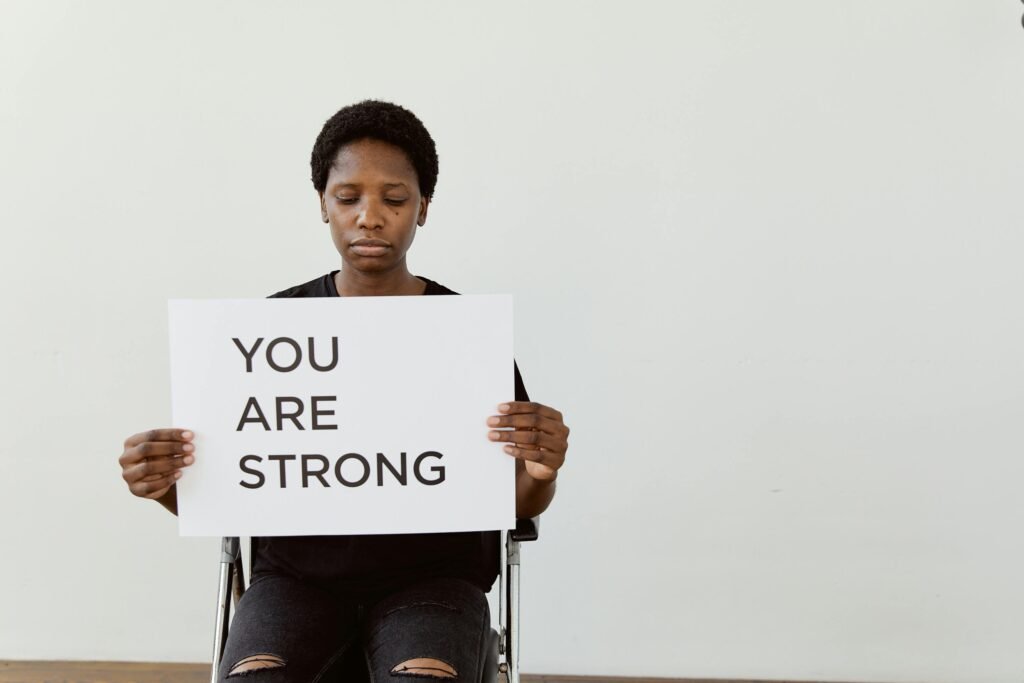Imagine feeling betrayed and lost after discovering infidelity in your relationship. The question lingers in your mind, can our relationship be salvaged? In this article, we explore the signs that indicate the possibility of restoring trust, rebuilding communication, and ultimately repairing a relationship that has been shattered by infidelity. Whether it’s a glimmer of hope or a flicker of doubt, understanding these signs can provide clarity and guidance in navigating the challenging path towards healing.

Acceptance
Acknowledging the infidelity
The first step in salvaging a relationship after infidelity is acknowledging the occurrence of the betrayal. This acknowledgment involves both parties recognizing and accepting the fact that infidelity has taken place. It can be a difficult and painful realization, but it is crucial for moving forward and rebuilding trust.
Taking responsibility
After acknowledging the infidelity, both partners need to take responsibility for their actions. It’s important to have a candid conversation about what led to the infidelity and accept individual accountability. This step requires honesty, self-reflection, and a willingness to address any underlying issues that may have contributed to the betrayal.
Accepting the pain
Accepting the pain caused by infidelity is a challenging yet crucial part of the healing process. It involves acknowledging the hurt, betrayal, and emotional turmoil experienced by the betrayed partner. By accepting the pain, it becomes possible to work through the complex emotions and move towards forgiveness and healing.
Open Communication
Willingness to talk about the infidelity
Open communication is key to salvaging a relationship after infidelity. Both partners must be willing to have honest and open discussions about the infidelity. This includes sharing their feelings, concerns, and fears related to the betrayal. By creating a safe space for dialogue, couples can foster understanding and address the issues that led to the infidelity in the first place.
Expressing emotions and concerns
In addition to discussing the infidelity, it is crucial for both partners to express their emotions and concerns openly. This means sharing feelings of hurt, anger, sadness, and betrayal without judgment or defensiveness. By actively listening to each other’s emotions, couples can develop empathy and a deeper understanding of the impact of infidelity on their relationship.
Ability to listen without judgment
Open communication also requires the ability to listen to each other without judgment. Both partners should create a non-judgmental space where they can share their perspectives and experiences. The goal is to foster empathy and understanding, which are essential for rebuilding trust and repairing the emotional bond between partners.
Rebuilding Trust
Transparency
rebuilding trust after infidelity necessitates transparency. Both partners must be committed to being transparent about their actions, whereabouts, and intentions. This includes being open about their daily activities, sharing passwords, and providing reassurance to the betrayed partner. Transparency helps to rebuild trust gradually, demonstrating the commitment to honesty and openness in the relationship.
Consistency
Consistency is another crucial aspect of rebuilding trust. It involves following through on commitments, being reliable, and maintaining a consistent behavior pattern. Consistency demonstrates trustworthiness and reliability, helping the betrayed partner feel secure in the relationship once again.
Taking actions to rebuild trust
Actions speak louder than words when it comes to rebuilding trust. Both partners must take proactive steps to rebuild trust, such as showing genuine remorse, being accountable for their actions, and making efforts to rebuild the emotional connection. These actions can include attending couple’s therapy, making positive changes in behavior, and demonstrating a commitment to personal growth.
Forgiveness and Healing
Acknowledging the hurt
Acknowledging the hurt caused by infidelity is a necessary step towards forgiveness and healing. The betrayed partner must be allowed to express their emotions and share the pain inflicted by the betrayal. By acknowledging this hurt, both partners can work towards understanding the depth of the damage caused and begin the healing process.
Working through the pain
Working through the pain caused by infidelity takes time and effort from both partners. It involves actively addressing and processing the emotions associated with the betrayal. This may include individual therapy, couples counseling, or engaging in activities that promote emotional healing, such as journaling or practicing mindfulness. Working through the pain together strengthens the bond and allows for emotional growth as a couple.
Reaching a point of forgiveness
Forgiveness is a personal journey that varies for each individual and couple. It involves letting go of resentment and releasing the burden of anger and hurt caused by infidelity. Reaching a point of forgiveness requires mutual understanding, empathy, and a willingness to move forward without holding onto past grievances. While forgiveness does not erase the past, it allows for the possibility of a renewed and healthier relationship.

Emotional Intimacy
Reconnecting on an emotional level
Infidelity often damages the emotional connection between partners. Reconnecting on an emotional level requires deliberate effort and vulnerability from both parties. This can be achieved through deep conversations, sharing dreams and aspirations, expressing love and affection, and actively seeking opportunities to strengthen the emotional bond.
Building a deeper bond
Building a deeper bond after infidelity involves going beyond surface-level interactions and actively investing in the relationship. This may include quality time spent together, engaging in shared interests, and fostering a sense of connection and understanding. By actively building a deeper bond, couples can create a stronger foundation for their relationship moving forward.
Sharing vulnerabilities
Sharing vulnerabilities is an essential part of fostering emotional intimacy after infidelity. It involves being open and honest about fears, insecurities, and past traumas. By sharing vulnerable aspects of oneself, partners can create a safe space for trust and empathy to flourish, ultimately strengthening the emotional connection and fostering a more intimate relationship.
Commitment to Change
Recognizing the need for change
Salvaging a relationship after infidelity requires recognizing the need for change. Both partners must acknowledge their role in the infidelity and be willing to address any underlying issues that contributed to it. This may involve self-reflection, seeking individual therapy, or making changes in behavior patterns that are detrimental to the relationship.
Committing to personal growth
Committing to personal growth is crucial for rebuilding a relationship after infidelity. It involves a genuine desire to learn from the past, develop healthier coping mechanisms, and address personal vulnerabilities. Personal growth allows individuals to become better partners and contribute to a more fulfilling and resilient relationship.
Making genuine efforts to improve the relationship
Salvaging a relationship after infidelity requires genuine efforts to improve the relationship. This may involve attending couples counseling, participating in relationship-building activities, and actively working on communication and conflict resolution skills. Making consistent and sincere efforts to improve the relationship demonstrates commitment and dedication to rebuilding trust and establishing a stronger connection.

Seeking Professional Help
Counseling or therapy
Seeking professional help through counseling or therapy can be beneficial for couples navigating the aftermath of infidelity. A skilled therapist can provide guidance, facilitate open communication, and offer tools and strategies for healing. Couples counseling can help address underlying issues, repair the emotional bond, and support the process of rebuilding trust.
Working with a relationship expert
In addition to counseling or therapy, working with a relationship expert who specializes in infidelity can provide valuable insights and guidance. A relationship expert can help couples navigate the complex emotions and challenges associated with infidelity, offering specific strategies and techniques tailored to their unique situation.
Seeking guidance for healing
Healing from infidelity can be a challenging and overwhelming process. Seeking guidance from a variety of sources, such as self-help books or support groups, can provide additional resources and perspectives to aid in the healing journey. Remember, seeking guidance for healing is a sign of strength and demonstrates a commitment to the relationship.
Respect and Empathy
Respecting boundaries
Respecting boundaries is crucial after infidelity. Both partners must establish and communicate their boundaries to ensure a sense of safety and respect within the relationship. Respecting each other’s boundaries demonstrates a commitment to rebuilding trust and honoring individual needs and preferences.
Showing empathy and understanding
Infidelity is a traumatic experience, and showing empathy and understanding towards the betrayed partner’s emotions is essential. This involves validating their feelings, offering support, and actively listening without judgment. Demonstrating empathy fosters a sense of emotional safety and facilitates the healing process.
Being considerate of each other’s needs
Being considerate of each other’s needs is fundamental for rebuilding a relationship after infidelity. Both partners must prioritize open communication regarding their emotional, physical, and relational needs. By actively considering and meeting these needs, couples can rebuild trust, strengthen the emotional connection, and create a healthier foundation for the future.
Time and Patience
Allowing time for healing
Healing from infidelity takes time and varies for each individual and couple. It’s important to allow the healing process to unfold naturally without rushing or placing unrealistic expectations on the timeline. Healing requires patience, understanding, and a willingness to support each other during this challenging journey.
Being patient with the process
Rebuilding a relationship after infidelity is a complex process that requires patience. It involves navigating various emotions, facing difficult conversations, and creating new dynamics within the relationship. Being patient with the process allows for growth, understanding, and the gradual restoration of trust.
Understanding that rebuilding takes time
Rebuilding trust and strengthening a relationship after infidelity cannot happen overnight. It’s essential to understand that rebuilding takes time and commitment from both partners. Embracing this understanding allows for realistic expectations and a gradual progression towards a healthier and more resilient relationship.
Red Flags
Lack of remorse
A lack of remorse from the unfaithful partner is a significant red flag when trying to salvage a relationship after infidelity. Genuine remorse is crucial for healing and rebuilding trust. If the unfaithful partner shows a lack of remorse or does not take responsibility for their actions, it may indicate a lack of commitment to change and a potential hindrance to the relationship’s future.
Continued dishonesty
Continued dishonesty is another red flag that must not be ignored. Rebuilding trust requires open and honest communication. If the unfaithful partner continues to be dishonest or hides information, it can hinder the healing process and create further damage to the relationship. Both partners must address and confront continued dishonesty in order to move forward.
Repeated infidelity
Repeated infidelity is a significant red flag and may indicate deeper issues within the relationship. While it is possible to salvage a relationship after a single instance of infidelity, repeated instances of betrayal may be indicative of larger underlying problems. In such cases, it is crucial to assess the viability of continuing the relationship and seek professional help to navigate the complexities involved.
In conclusion, salvaging a relationship after infidelity is a challenging and intricate process. However, with acceptance, open communication, a commitment to change, and patience, it is possible to rebuild trust and create a stronger, more resilient connection. Seeking professional help and actively engaging in the healing journey are essential steps towards achieving forgiveness, emotional intimacy, and an ultimately healthier relationship. Remember, each relationship is unique, and the path to recovery may vary.
Christopher Conway, the innovative mind behind “Love Blueprints,” is a seasoned relationship expert and author. His insightful guidance, drawn from years of experience and study, offers transformative strategies for modern love and dating. Christopher’s commitment to enhancing romantic connections has made “Love Blueprints” a go-to resource for those navigating the complexities of relationships.




